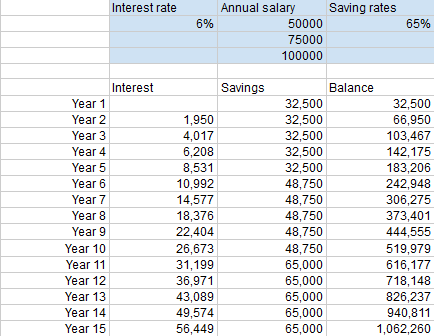Can You Retire With a Million Dollars
Post on: 16 Март, 2015 No Comment

I recently received an e-mail from a reader who is frustrated by their lack of progress when it comes to retirement savings. In short, they thought it unlikely that theyd ever be able save more than a million dollars, if that. Would they still be able to retire?
The short answer is that yes, as long as youre careful with your money, you should be able to retire on a million dollars, or even less. What follows are some things to consider when evaluating how much youll need to retire.
Consider the income generated
If you take the 4% safe withdrawal rate as a rule of thumb, your $1M nest egg will generate an inflation-adjusted $40k in annual income.
Of course, the reliability of that 4% rule depends on a lot of things, such as time horizon, the composition and expected performance of your investment portfolio, whether or not you retire into a collapsing stock market, etc.
If youre not comfortable with that number, feel free to use your own. The point here is that $1M can generate a considerable amount of investment income.
Consider your expenses
Its commonly said that your expenses will go down in retirement. For example, if you own a house, youll hopefully have paid it off before you reach retirement age, so thats typically a major savings over having a monthly mortgage payment.
Similarly, youll no longer have a number of work related expenses, such as dressing for and commuting to work. Another work-related expense that will go away is that youll no longer be saving for retirement. Also, unless you retire very young, you most likely wont have child-rearing expenses when you retire.
Of course, there are some areas in which your expenses might increase (e..g. travel, healthcare, etc.) so be sure to factor those things in when running the numbers.
What about health insurance?
This is a potentially big one. While some retirees have health insurance through their former employer, many dont. In the future, Id bet even fewer retirees will have access to such benefits. Of course, the healthcare landscape is changing in this country, so your needs in this area might also change.
Despite these unknowns, I think its safe to say that the high cost of health insurance will be especially problematic for young retirees, as theyll have a long ways to go before theyre eligible for Medicare.
Tax considerations
Another important factor is taxes. The structure of your investment portfolio will play an important role in determining your income in retirement. If youve saved primarily in Roth accounts, your money will come out free of income taxes. Thats huge.
If, on the other hand, youve saved in a traditional 401(k) or IRA, youll owe income taxes on your distributions. The good news here is that youll likely be in a lower tax bracket at retirement. The bad news is that even the lower tax brackets might have tax rates in the future.
Consider the effects of inflation
While the 4% safe withdrawal rate gives you an inflation-adjusted 4% of your initial portfolio value in income per year, this doesnt account for the fact that $1M at retirement age will be worth much less than it is today.
In other words, if I gave you had $1M in your pocket today, youd be in a much better position than if you had $1M in your pocket 30 years from now. This is simply due to the devaluing effects of inflation.
Consider this: After 30 years of relatively tame inflation (3% per year) the purchasing power of $1.00 will be roughly $0.40. This is exactly why people say that a million bucks aint what it used to be.
Consider other sources of income
Of course, another important consideration is whether or not youll have any alternate sources of income. For example, my parents retired with a much smaller nest egg because most of my dads retirement savings throughout his career went into a generous pension plan that now covers their living expenses.
In fact, in most years, they take the required minimum distribution (RMD) from their other IRAs simply because they have to. They then invest that money elsewhere because they dont need need it on a daily basis.
Your thoughts
How much money youll need in retirement is a complex topic. Ive given you some issues to think about above, but Ive undoubtedly missed some things. Do you have anything to add?














